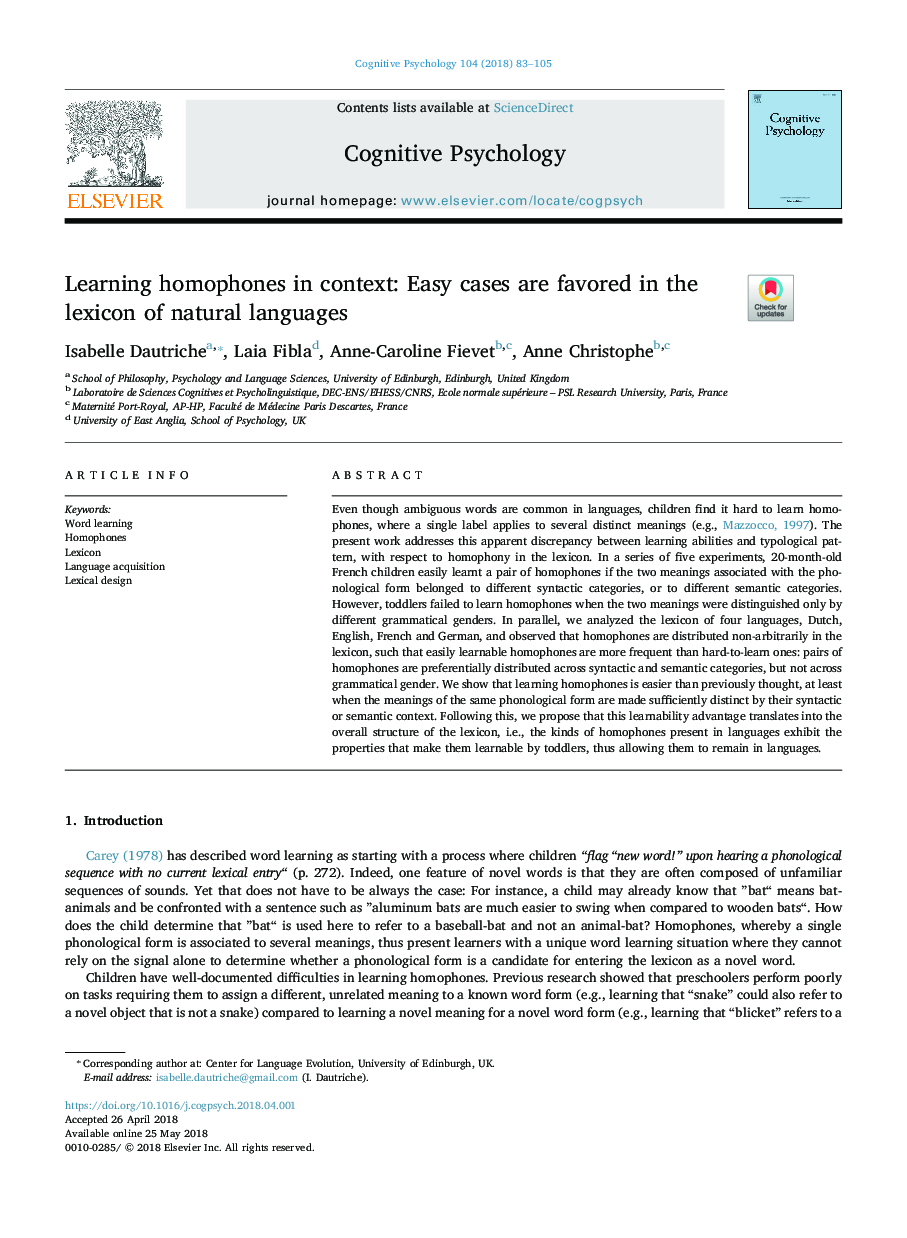| کد مقاله | کد نشریه | سال انتشار | مقاله انگلیسی | نسخه تمام متن |
|---|---|---|---|---|
| 7272593 | 1473360 | 2018 | 23 صفحه PDF | دانلود رایگان |
عنوان انگلیسی مقاله ISI
Learning homophones in context: Easy cases are favored in the lexicon of natural languages
ترجمه فارسی عنوان
یادگیری هماهنگی در زمینه: موارد آسان در لغت نامه زبان های طبیعی مورد توجه قرار می گیرد
دانلود مقاله + سفارش ترجمه
دانلود مقاله ISI انگلیسی
رایگان برای ایرانیان
کلمات کلیدی
موضوعات مرتبط
علوم زیستی و بیوفناوری
علم عصب شناسی
علوم اعصاب شناختی
چکیده انگلیسی
Even though ambiguous words are common in languages, children find it hard to learn homophones, where a single label applies to several distinct meanings (e.g., Mazzocco, 1997). The present work addresses this apparent discrepancy between learning abilities and typological pattern, with respect to homophony in the lexicon. In a series of five experiments, 20-month-old French children easily learnt a pair of homophones if the two meanings associated with the phonological form belonged to different syntactic categories, or to different semantic categories. However, toddlers failed to learn homophones when the two meanings were distinguished only by different grammatical genders. In parallel, we analyzed the lexicon of four languages, Dutch, English, French and German, and observed that homophones are distributed non-arbitrarily in the lexicon, such that easily learnable homophones are more frequent than hard-to-learn ones: pairs of homophones are preferentially distributed across syntactic and semantic categories, but not across grammatical gender. We show that learning homophones is easier than previously thought, at least when the meanings of the same phonological form are made sufficiently distinct by their syntactic or semantic context. Following this, we propose that this learnability advantage translates into the overall structure of the lexicon, i.e., the kinds of homophones present in languages exhibit the properties that make them learnable by toddlers, thus allowing them to remain in languages.
ناشر
Database: Elsevier - ScienceDirect (ساینس دایرکت)
Journal: Cognitive Psychology - Volume 104, August 2018, Pages 83-105
Journal: Cognitive Psychology - Volume 104, August 2018, Pages 83-105
نویسندگان
Isabelle Dautriche, Laia Fibla, Anne-Caroline Fievet, Anne Christophe,
